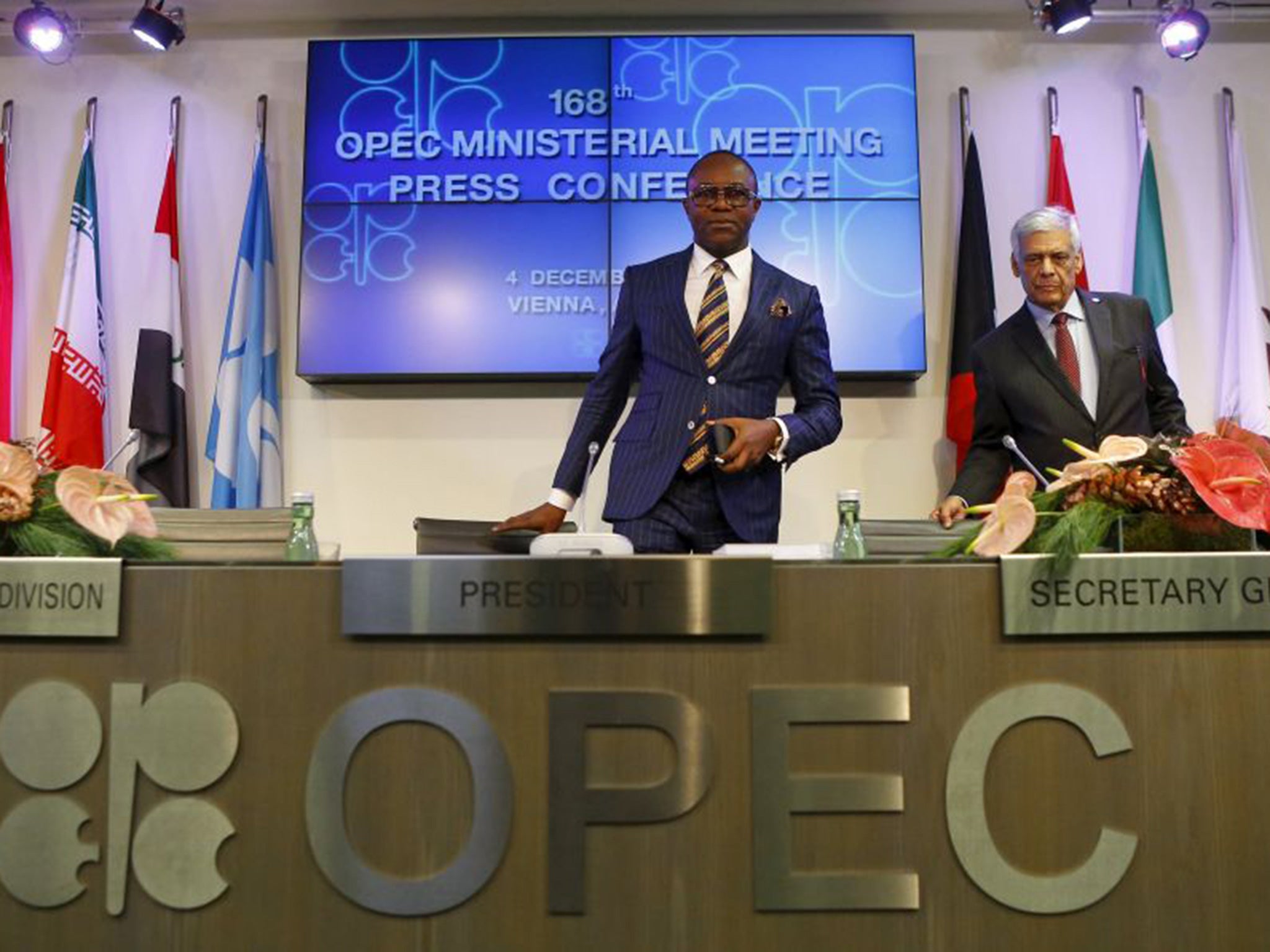Libya and Iraq most at risk after oil price drops to seven year low
The price of Brent crude oil dropped to a seven year low

Iraq and Libya are the two countries most at risk of political instability after the oil price continued to slide on Monday.
The price of West Texas Intermediate, the US oil standard, slipped dropped 4.6 per cent to $38.16 a barrel on December 7, extending a slide of 4.2 per cent after OPEC decided against cutting supply. Brent crude, used for two third of contracts around the world, hit a seven-year low of $41.85 a barrel, a level not seen since 2009.
Libya and Iraq had the maximum risk of instability from falling oil revenues due to existing conflicts in both regions, according to a research note from RBC Capital Markets.
“We believe that the current OPEC strategy – or non-strategy – leaves a significant portion of the cartel at risk for a significant crisis in 2016,” said Helima Croft, global head of commodity strategy at RBC Capital Markets.
There were hopes of a deal to limit the production of oil and stop prices from falling at a meeting of the Organisation of Petroleum Exporting Countries on December 4.
OPEC used to limit oil production to 30 barrels a day – a level that oil producing countries breached some time ago.
Hopes were dashed when Iran refused to consider a limit because it had curbed output for years under Western sanctions.
OPEC’s failure to reach a deal has turned oil production into a free-for-all that is expected to see prices fall even further. That could have a devastating effect on countries that rely on oil revenue.
“It means more OPEC oil next year,” Jamie Webster, a Washington-based oil analyst for IHS Inc., said of the organization’s Dec. 4 decision. “OPEC is not cutting. With Iran looming, as well as largely only upside risk for Libya, the smart money is on more, and not less, production.”
Analysts at Goldman Sachs said that prices would remain “lower for even longer” following to decision not to limit production. They said that the high levels of surplus, further supply from non-OPEC countries and robust demand would maintain prices for another year.
Join our commenting forum
Join thought-provoking conversations, follow other Independent readers and see their replies
Comments